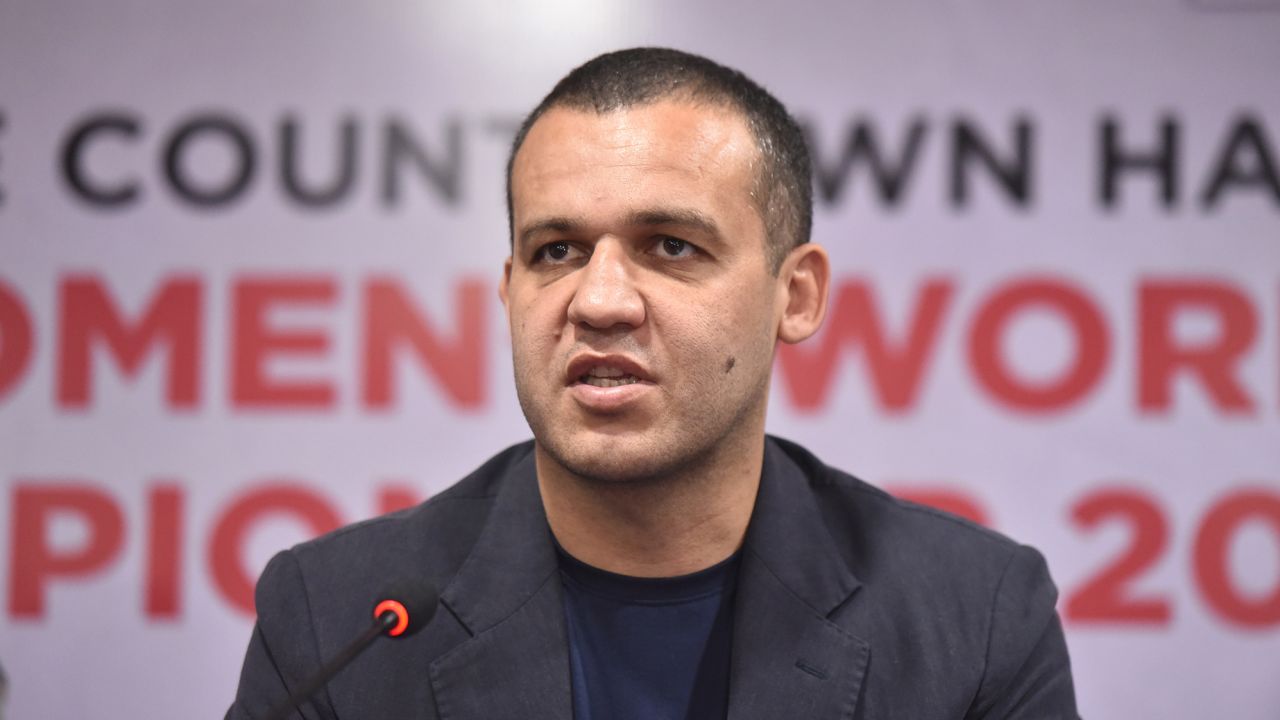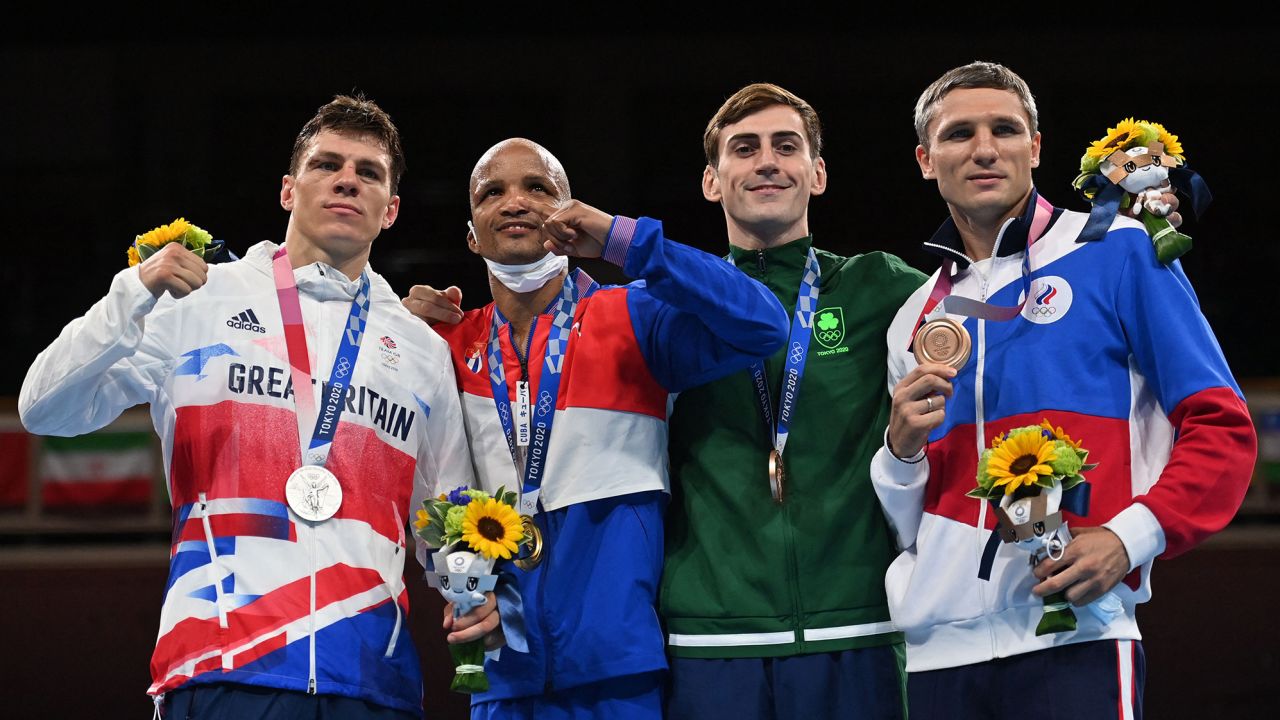CNN
—
It’s an Olympic sport which has its origins in Ancient Greece, and which helped stars of the ring such as Muhammad Ali, George Foreman, Joe Frazier, Nicola Adams, Claressa Shields and Katie Taylor become known to global audiences.
These days, however, Olympic boxing is on the ropes, bruised and battered by infighting.
USA Boxing accused the Russian-led International Boxing Association (IBA) on Monday of possible “sabotage,” saying the IBA had announced a “false and misleading” qualification process for the 2024 Olympic Games.
It comes after tension between the IBA and the International Olympic Committee (IOC) as well as several boxing federations around the world, which has led to eight countries, including the US, boycotting the forthcoming women’s and men’s world championships, according to Reuters.
How did Olympic boxing reach this tipping point and what is next for the sport with Paris 2024 a little over a year away?
Tensions started to emerge in 2019.
A report, sanctioned by the IOC, into the IBA’s running of the sport recommended that the IBA be suspended from its right to organize the boxing tournament at the 2020 Olympics because of the “ongoing seriousness of the issues in the areas of finance, governance, ethics, and refereeing and judging.”
Serbian IOC member Nenad Lalovic delivered the report to the IOC executive, saying the IBA could reach a debt of as much as 29 million Swiss francs ($31 million) by the end of June 2021.
At the time, IBA interim president Mohamed Moustahsane said it was imperative for the organization to “come together and work together as a unit” so it can “continue to fight for our Olympic future.”
The IOC voted unanimously to implement the recommendations. In a statement, the IOC President Thomas Bach said there needed to be “fundamental change” before the suspension could be lifted and that the Olympic governing body’s decision was “taken in the interest of the athletes and the sport of boxing.”
As a result of its exclusion from the qualification process and the official Tokyo Games, the IBA lost the right to run the qualifications for the Tokyo 2020 Games. An IOC task force ran the qualification for Tokyo 2020 as well as the Games themselves.
In June 2022, the IOC maintained the suspension, making public the roadmap the IBA would have to follow, including financial transparency and changing its refereeing and judging process, before the IOC could consider lifting the sanctions in 2023.
A particular concern for the IOC was the IBA’s “financial dependency” on Russian state-owned oil company Gazprom, according to the IOC. Gazprom has been sanctioned by both the UK and US governments.
Midway through 2022, the IOC announced the qualification process for the 2024 Games in Paris and said the competition itself would once again not be run by the IBA due to the “continuing and very concerning issues” over governance, refereeing, and the judging system.
In a statement the IBA said it had been “dealing with significant governance issues,” which it said were a “burden from the past leadership.”
“We continue to be punished for a culture of corruption that was created and nourished by some of the individuals from the IOC’s upper echelon,” the statement added.
“This culture of corruption was developed over time and fixing it will take time to be done right, which has been ongoing for more than 2 years.”
The IBA is headed by Russian Umar Kremlev after he was elected in December, 2020.
Kremlev was re-elected unopposed in May, 2022 after Dutch candidate Boris van der Vorst was declared ineligible. The Court of Arbitration for Sport ruled a month later that van der Vorst was wrongly prevented from standing.

On Monday, the IBA said its upcoming women’s and men’s world championships in New Delhi in March and Tashkent in May will in fact be “main qualification events” for Paris 2024.
The IBA’s announcement came after eight major boxing nations, including the US and the UK, announced they would boycott the events due to the IBA allowing Russian and Belarusian fighters to compete with their national flags and anthems, according to Reuters.
Athletes from both countries have been barred from competing under their nation’s banners – or competing in general – in many sports following Russia’s invasion of Ukraine.
Belarus helped Russia launch its initial invasion of Ukraine last February, allowing the Kremlin’s troops to enter the country through the 1,000-kilometer (621-mile) Ukrainian-Belarusian border to the north of Kyiv.
Last year, the IBA announced it was permitting athletes from both Russia and Belarus to compete under their flags, at the time going against IOC guidelines which recommended that Russian and Belarusian athletes be banned from competition.
In January, 2023, the IOC outlined a multi-step plan for Russian and Belarusian athletes to participate at the upcoming 2024 Summer Games in Paris and the 2026 Winter Games in Milan as “neutral athletes.”
About a month later, the US and more than 30 other “like-minded” countries released a statement asking the IOC to reconsider its decision, and announced they were backing a proposed ban of Russian and Belarusian athletes from competing in international sports.
The countries – including the UK, Canada and most of Europe – said in a joint statement that there is “no practical reason to move away from the exclusion regime for Russian and Belarusian athletes.”
On Wednesday, the IOC reiterated its condemnation of the war in Ukraine, saying the “Olympic Movement remains steadfast in its commitment to help the Ukrainian athletes in every way possible.”
The IBA said it will offer support to any athlete from a boycotted nation to compete if they wish to and not fall foul of national federations choosing to “use geopolitics as a means to play political games within boxing.”
A series of regional qualification tournaments will provide the foundation of qualification for the Olympic Games next year after the system was approved by the IOC last September.

There will also be two world qualification tournaments early next year to complete the process.
In a statement sent to CNN, the IOC contradicted the IBA’s announcement, saying “the IBA will not be involved in Paris 2024’s boxing qualifications and tournament.”
The statement said the IBA’s suspension was “still in force” and that “the only valid boxing qualification system for Paris 2024 is the one approved by the IOC EB in September 2022, published and distributed to NOCs and boxing National Federations on 6 December 2022.”
According to Reuters, boxing has yet to be confirmed for the 2028 Los Angeles Olympic Games, pending reforms demanded by the IOC.
In a statement on February 20, USA Boxing executive director, Mike McAtee, called the IBA’s announcement of qualifying tournaments “totally unacceptable” and said it “clearly intends to cause confusion in the United States and the world boxing community.”
“IBA is, at best, incompetent. At worst, USA Boxing believes this may be an attempt to sabotage the Olympic Qualification for Paris Olympic Games,” he said.
McAtee added that USA Boxing remained “committed to the Olympic movement” by following the IOC’s principles of “proper governance, promoting neutral third-party oversight of the field of play, condemning false and misleading information from IBA leadership and demanding transparent financial management.”
On Wednesday, Ukraine’s boxing federation (FBU) joined the other eight federations in boycotting the IBA’s world championships.
FBU vice president Oleg Ilchenko told public broadcaster Suspilne that Ukrainian atheltes will not participate in both the men’s and women’s championships.
“Our answer is clear – our athletes and representatives of the Boxing Federation of Ukraine do not compete where representatives of the aggressor countries, namely Russia and Belarus, will compete,” Ilchenko said, per Reuters.
Ilchenko added: “As long as the war is going on and as Russian troops are on the territory of our country … they will not participate.”

